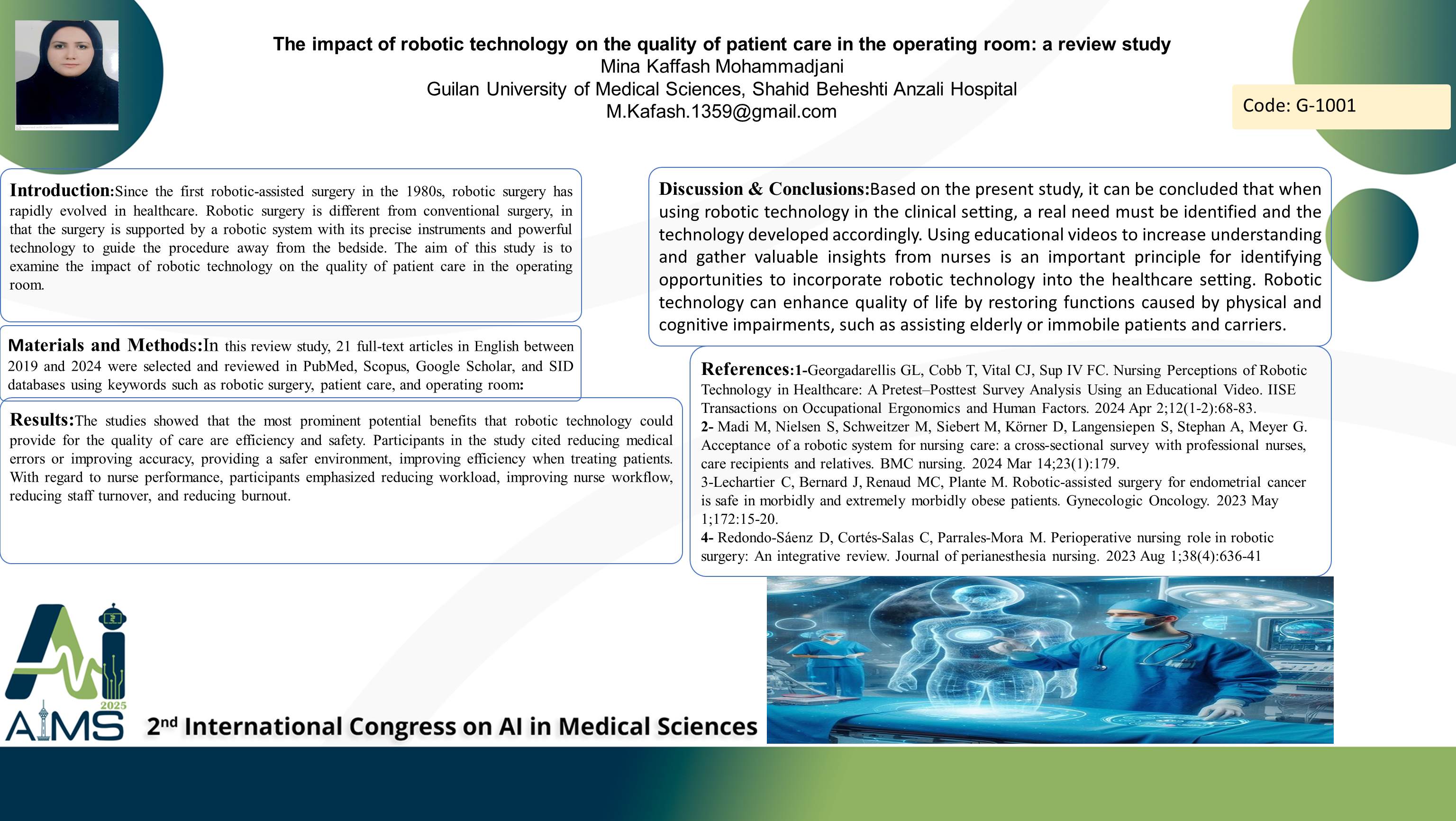The impact of robotic technology on the quality of patient care in the operating room: a review study
Code: G-1243
Authors: Mina Kafash Mohamadjani * ℗
Schedule: Not Scheduled!
Tag: Intelligent Virtual Assistant
Download: Download Poster
Abstract:
Abstract
Background and aims: Since the first robotic-assisted surgery in the 1980s, robotic surgery has rapidly evolved in healthcare. Robotic surgery is different from conventional surgery, in that the surgery is supported by a robotic system with its precise instruments and powerful technology to guide the procedure away from the bedside. The aim of this study is to examine the impact of robotic technology on the quality of patient care in the operating room. Materials and Methods: In this review study, 21 full-text articles in English between 2019 and 2024 were selected and reviewed in PubMed, Scopus, Google Scholar, and SID databases using keywords such as robotic surgery, patient care, and operating room. Results: The studies showed that the most prominent potential benefits that robotic technology could provide for the quality of care are efficiency and safety. Participants in the study cited reducing medical errors or improving accuracy, providing a safer environment, improving efficiency when treating patients. With regard to nurse performance, participants emphasized reducing workload, improving nurse workflow, reducing staff turnover, and reducing burnout. Discussion and Conclusion: Based on the present study, it can be concluded that when using robotic technology in the clinical setting, a real need must be identified and the technology developed accordingly. Using educational videos to increase understanding and gather valuable insights from nurses is an important principle for identifying opportunities to incorporate robotic technology into the healthcare setting. Robotic technology can enhance quality of life by restoring functions caused by physical and cognitive impairments, such as assisting elderly or immobile patients and carriers.
Keywords
Robotic Technology,Patient Care,Surgery,Operating Room,Medical Error
